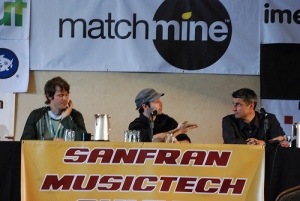Those who know my musical taste know I’m a big fan of world music (Putamayo, anyone?) – both traditional cultural music as well as the more modern fusion of ethnic sounds with, say, an awesome dance beat. As such, I’ve decided to start an international music spotlight series with occasional posts highlighting specific genres from specific cultures each time. Off we go!
I’m no expert when it comes to hip hop, that’s for damn sure. But I do know when I hear something I like. And I like a lot of hip hop…and how revolutionary its artists can be. Some of them truly empower their followers with their impassioned lyrics. Some of them are heroes in their communities and fierce activists. Hip hop* is music with a purpose.
*Obviously, I’m referring to the underground (or at least less mainstream) artists whose works are centered around poignant topics like political corruption, poverty, war, HIV, social change etc…NOT mainstream “hip pop” stars who rap about meaningless crap (e.g. money, drugs, sex) but have catchy beats that propel their songs to success in the clubs and on the charts…though those artists certainly have a right to their place in the musical spectrum.
The global hip hop scene could be conceived of as being still in its infancy – at least in terms of large scale awareness. Despite an increasing number of destinations like Flight 808, an international hip hop site/blog, and Nomadic Wax, a “record label, production company and events production company specializing in hip-hop and underground music from around the globe”, most international underground hip hop is, you know, still underground.
Today, I chose to spotlight Uganda, because my aunt has been working in Kampala for several years and it’s next on my wish list of places to travel to.
Ugandan Hip Hop (Lugaflow)
An excellent starting point is this documentary called Diamonds in the Rough:
O’Reilly Radar has a good description of the film, which follows Bataka Squad, a Ugandan hip hop group who raps in their native tongue, Luganda, and uses their art form to raise awareness of local issues, inspire youth and do all kinds of good. Click here for a brief history of the group.
Bataka Squad is a great example of a local group who refuses to sell out and play the kind of music that is popular in favor of staying true to their roots and disseminating their message. Thanks to their perseverance, they have not only garnered a local following among Ugandan youth but have caught the attention of a more international audience ranging from the first African hip hop summit in South Africa in 2005 to the Power to the Peaceful Festival in San Francisco in 2007. They even met Bill Clinton.
After the Artist Activism workshop that I mentioned in a previous post, I’ve been thinking more and more about the inherent power of music and its ability to empower people, spread positive messages of hope and change [insert obvious Obama plug here], and educate the international community about local issues.
On that note…




